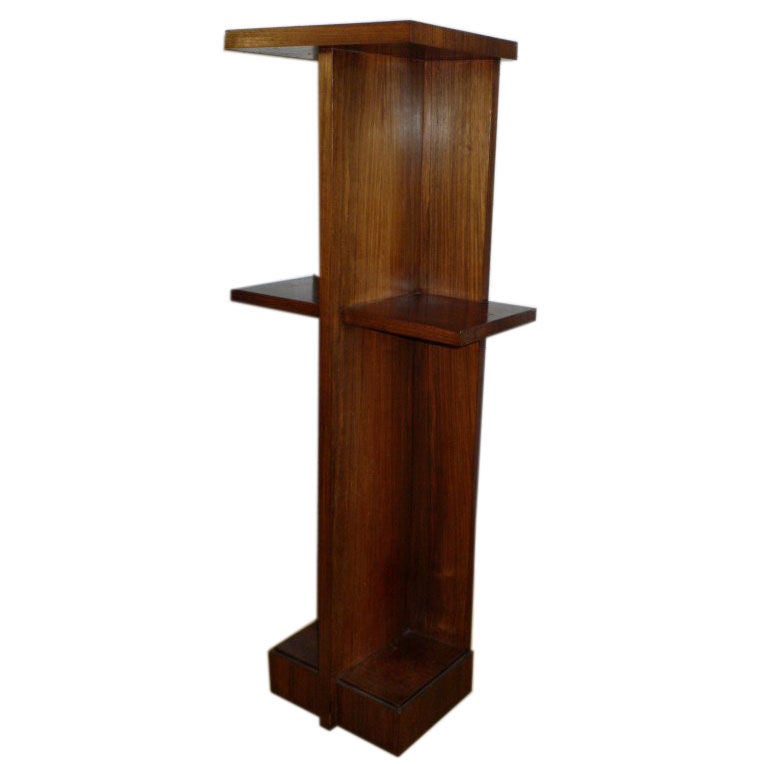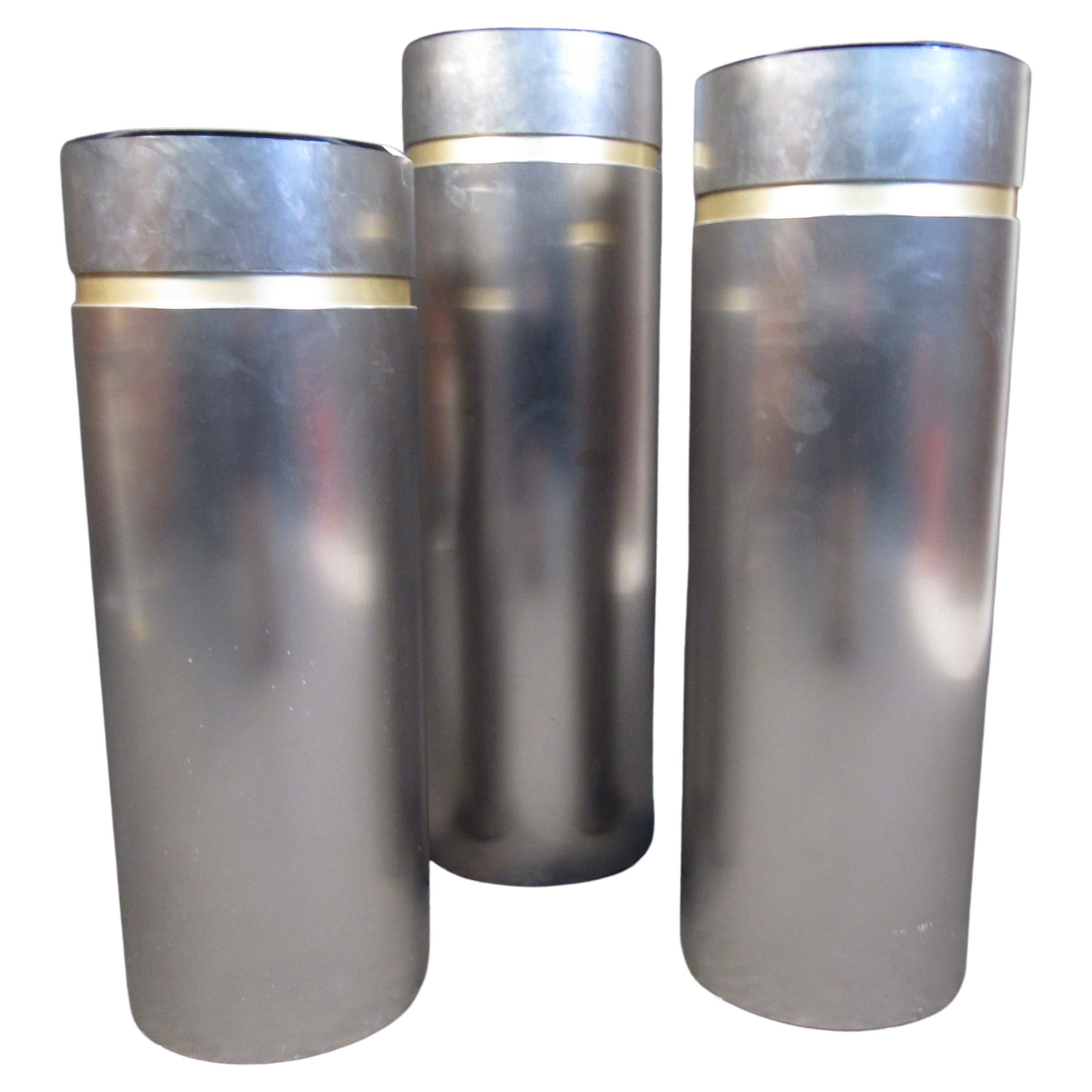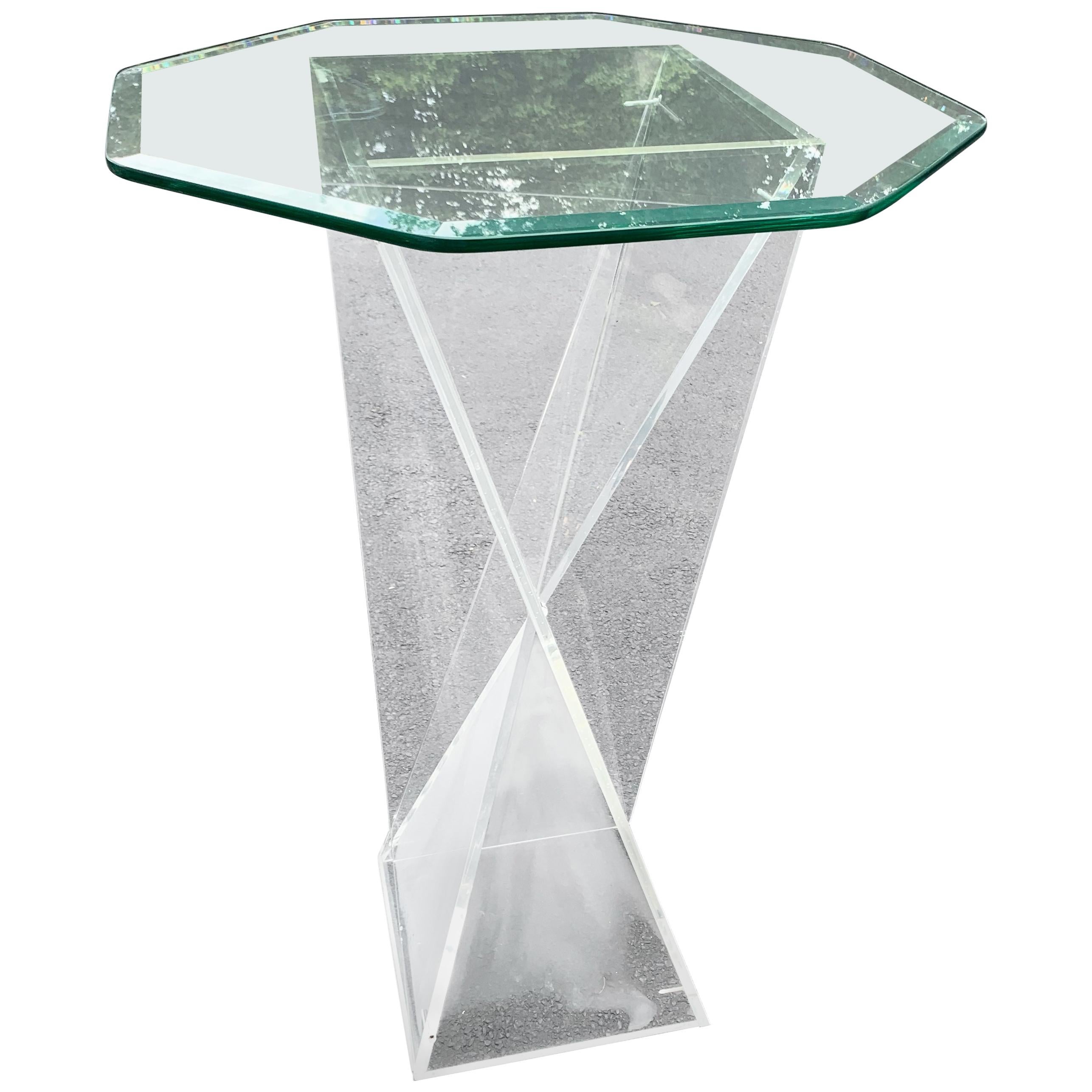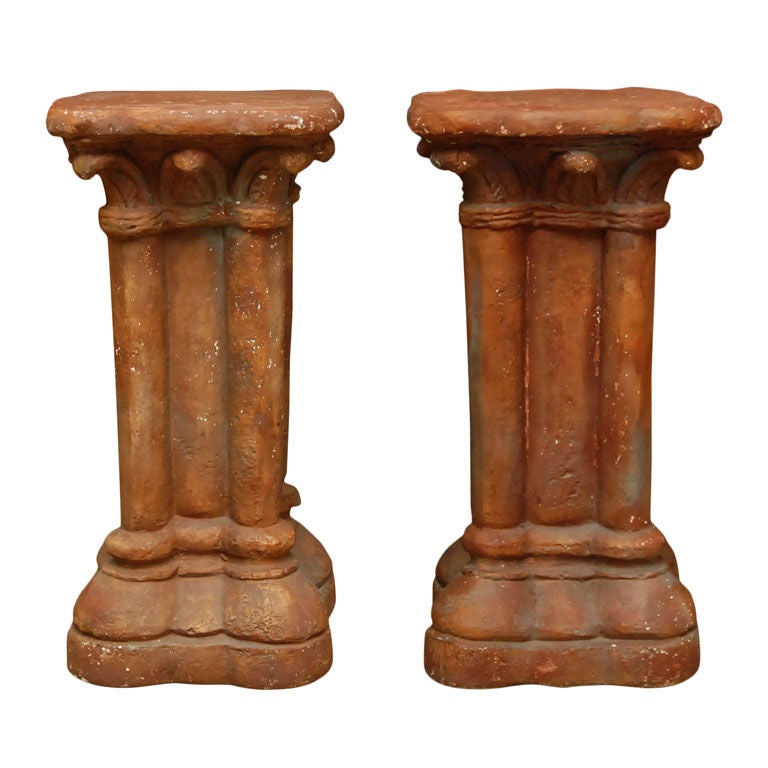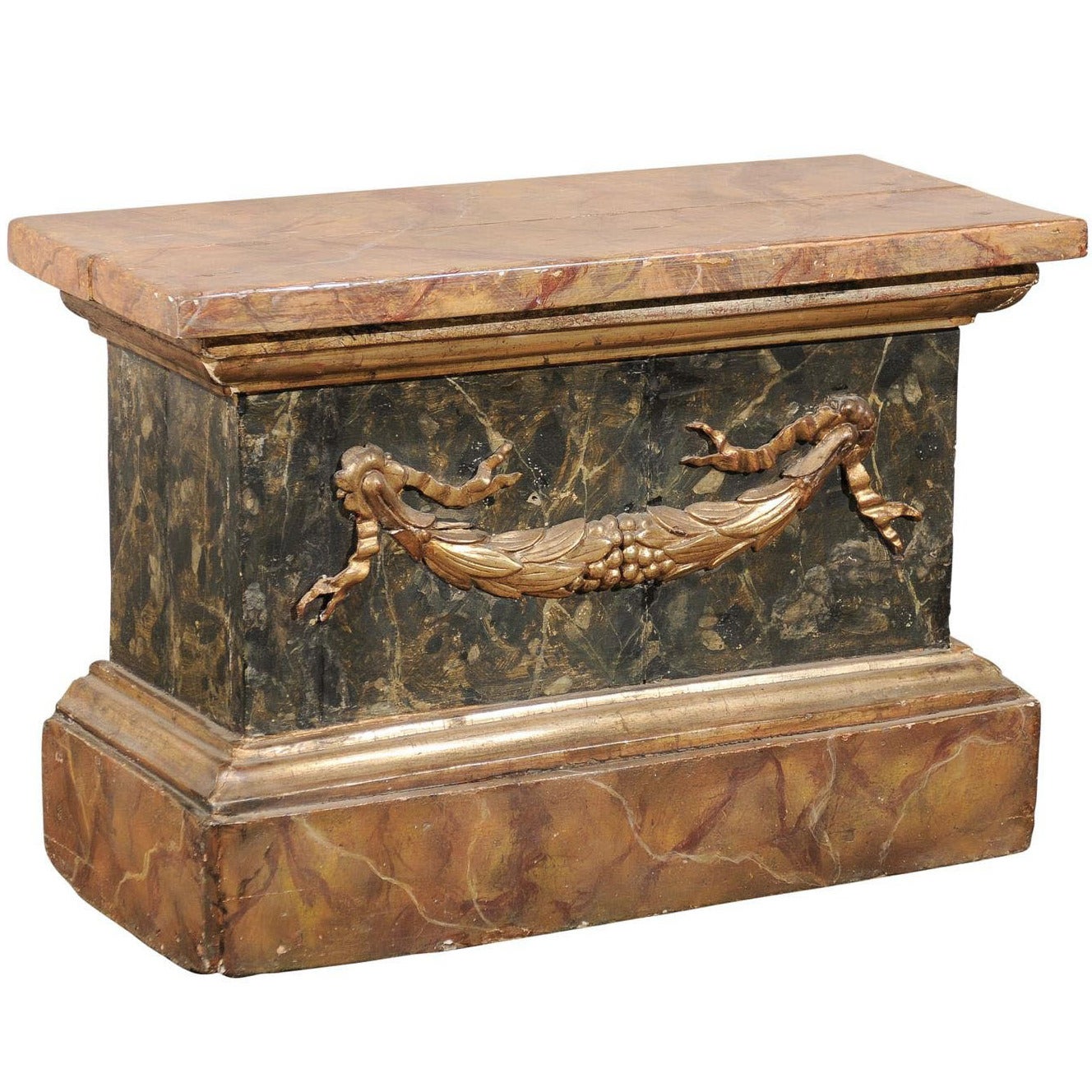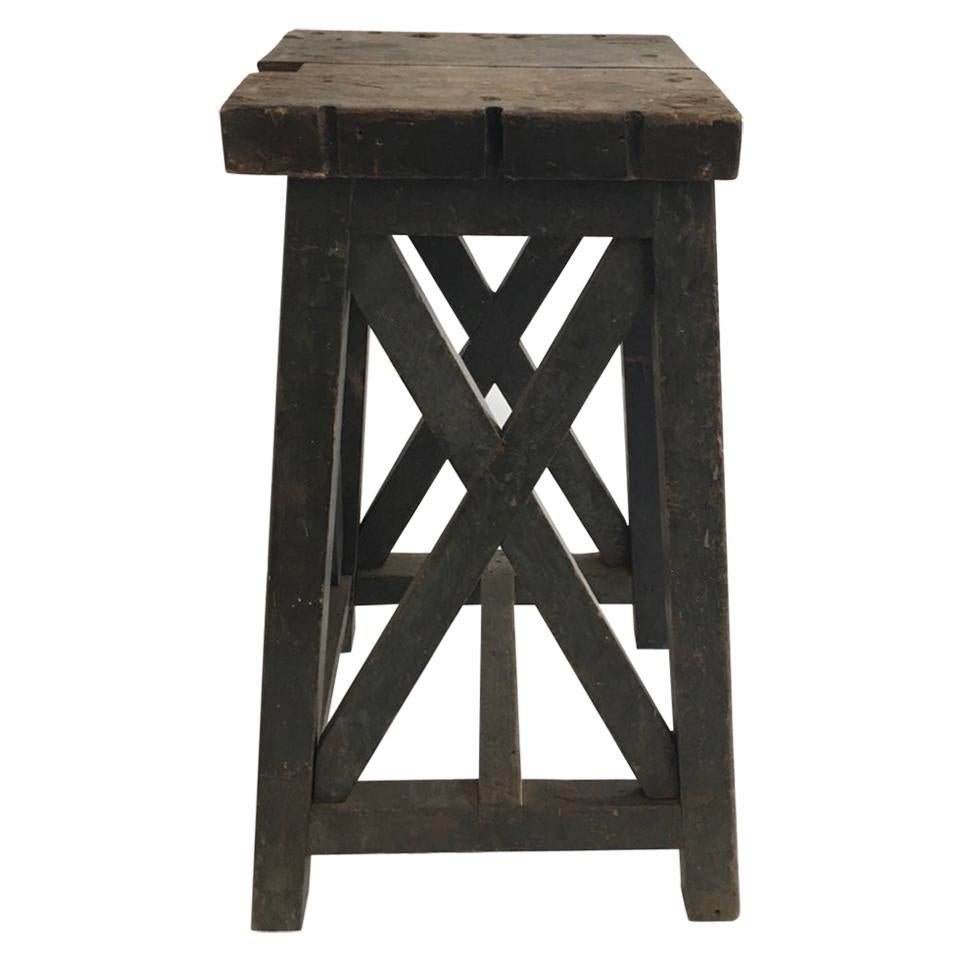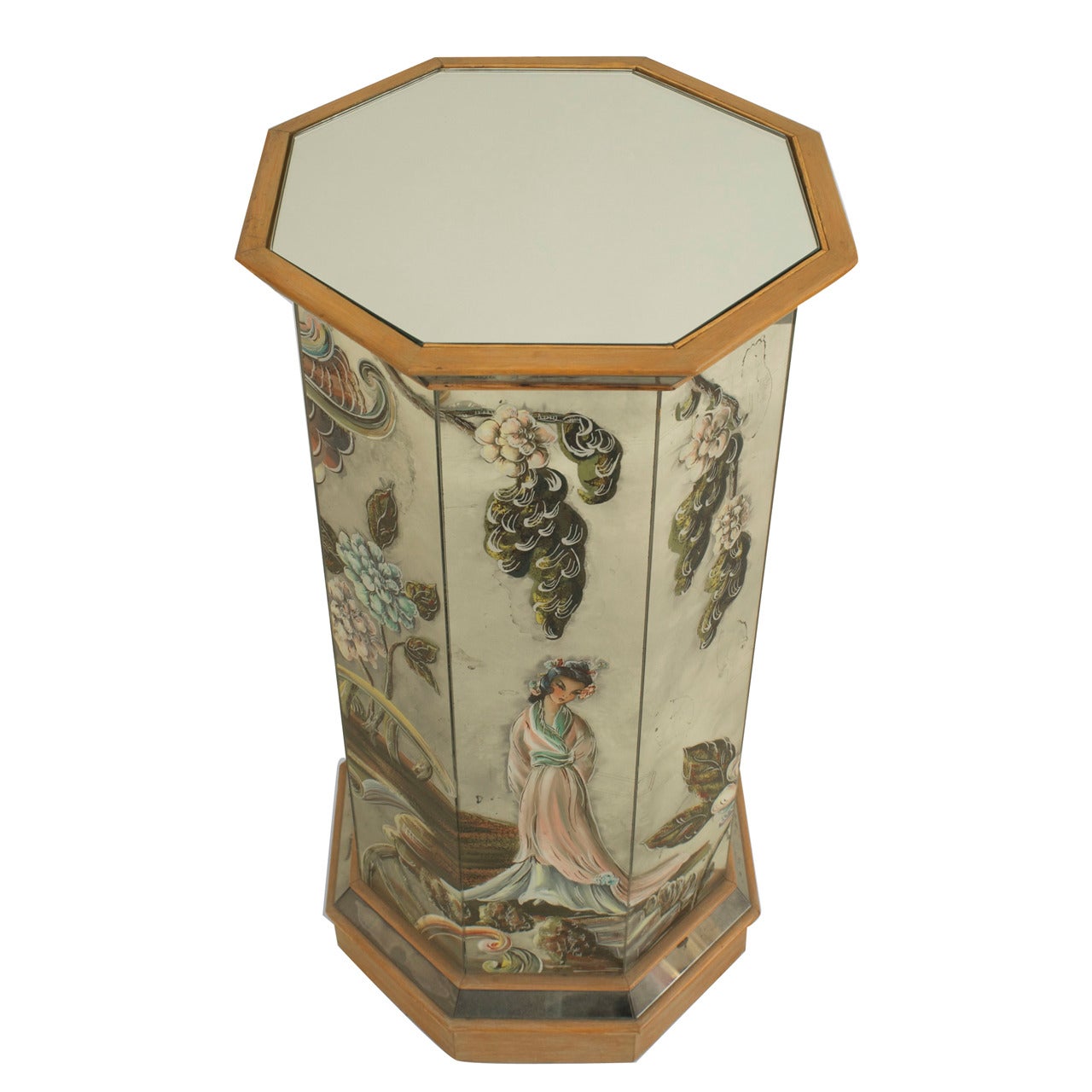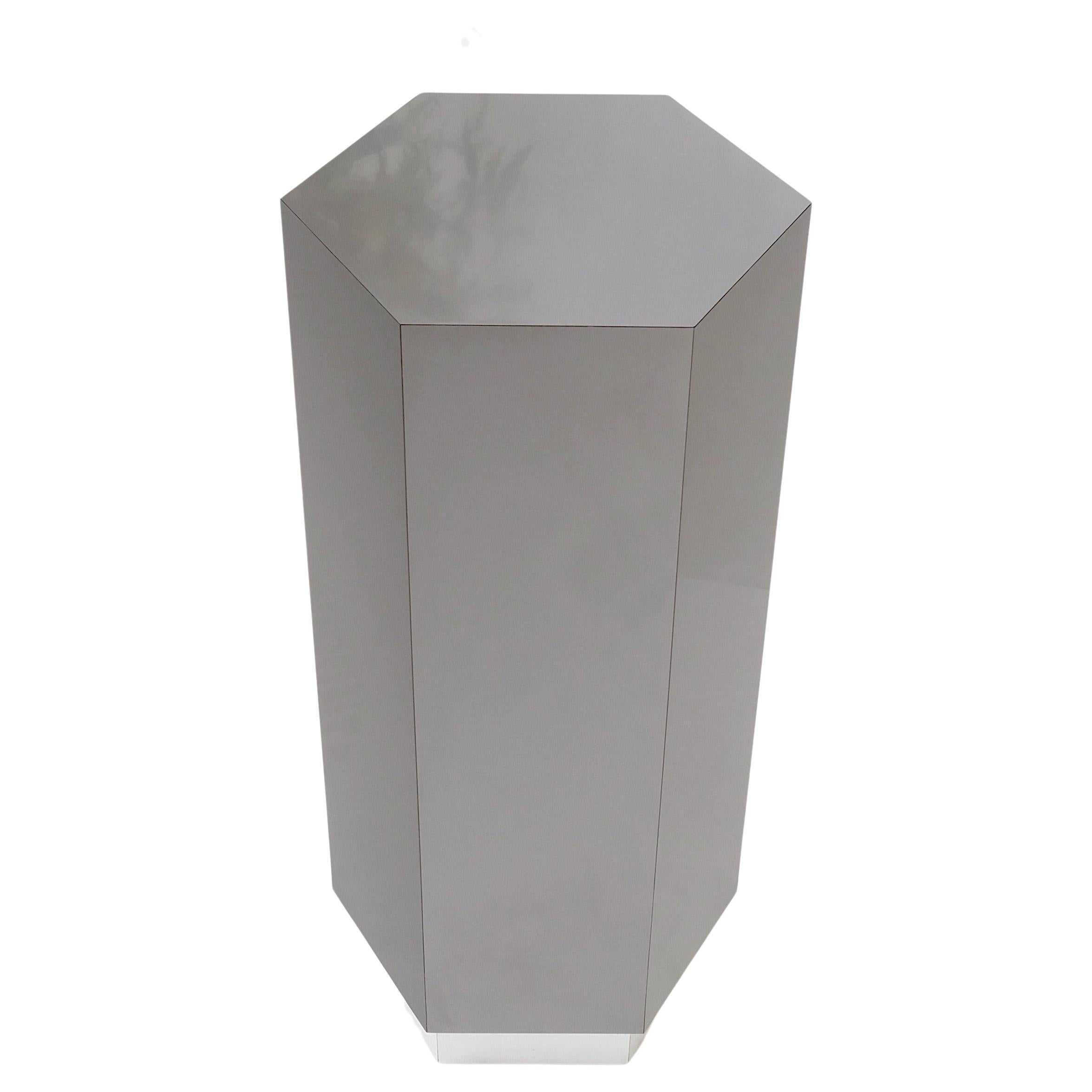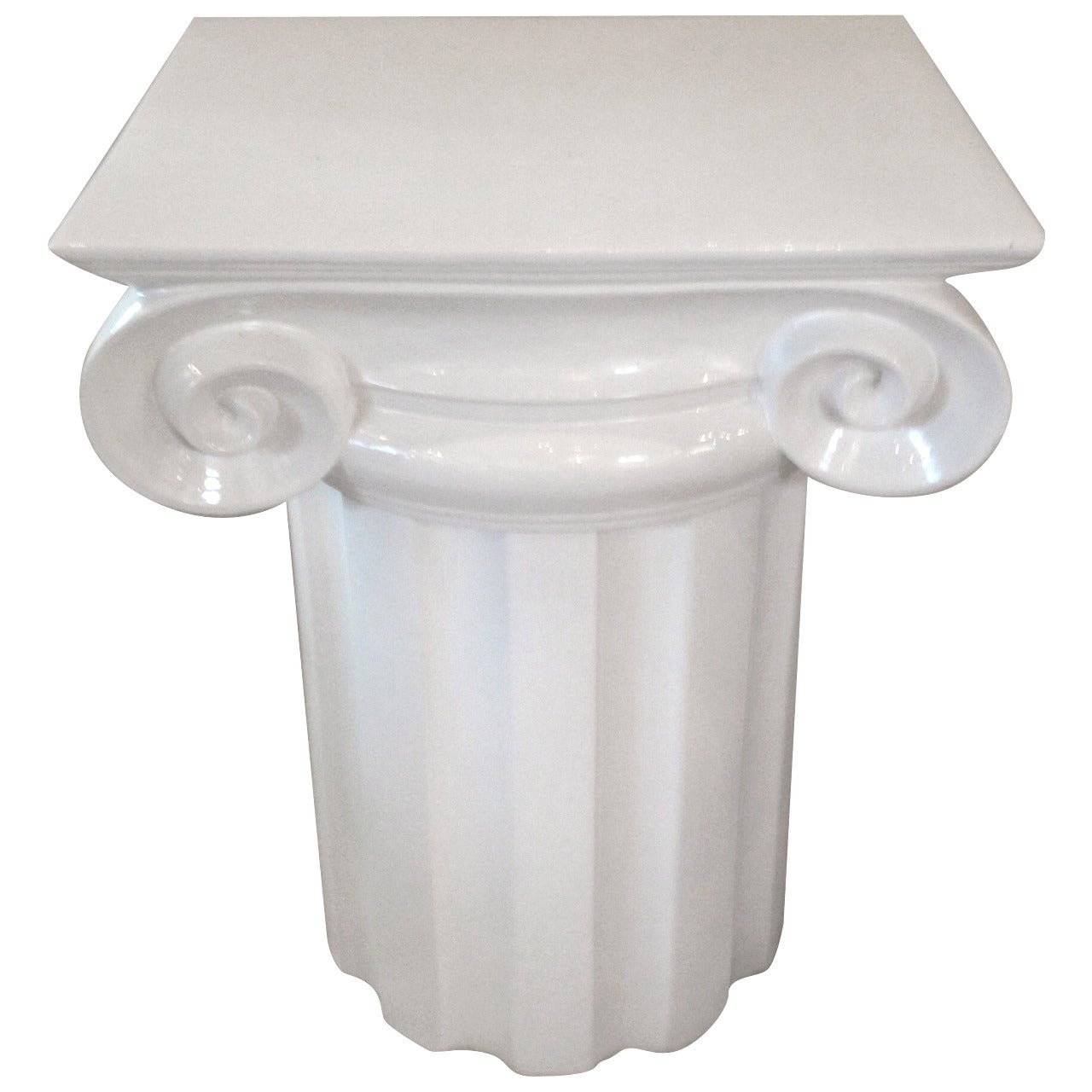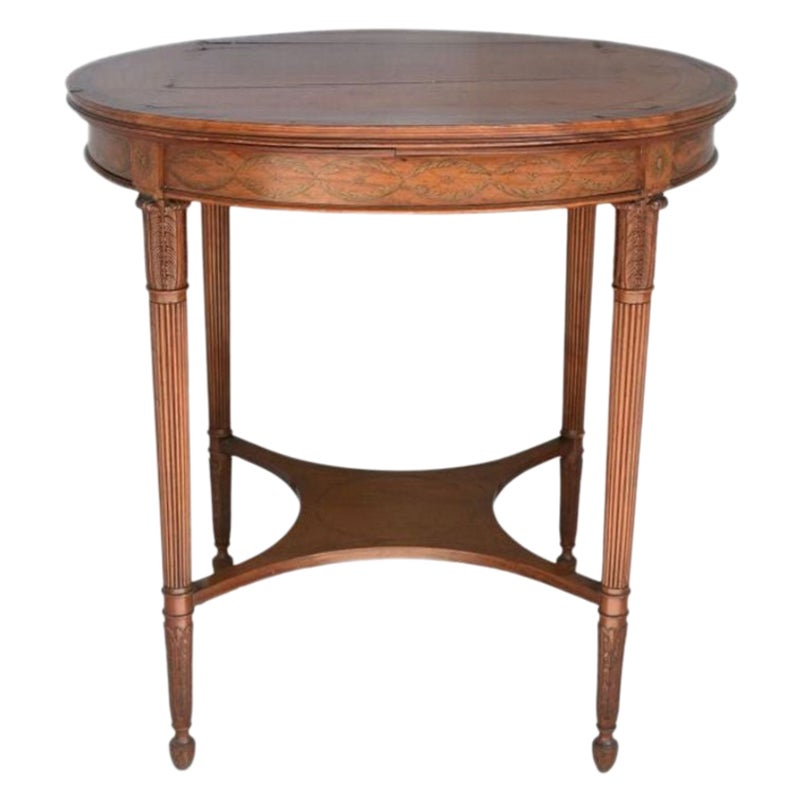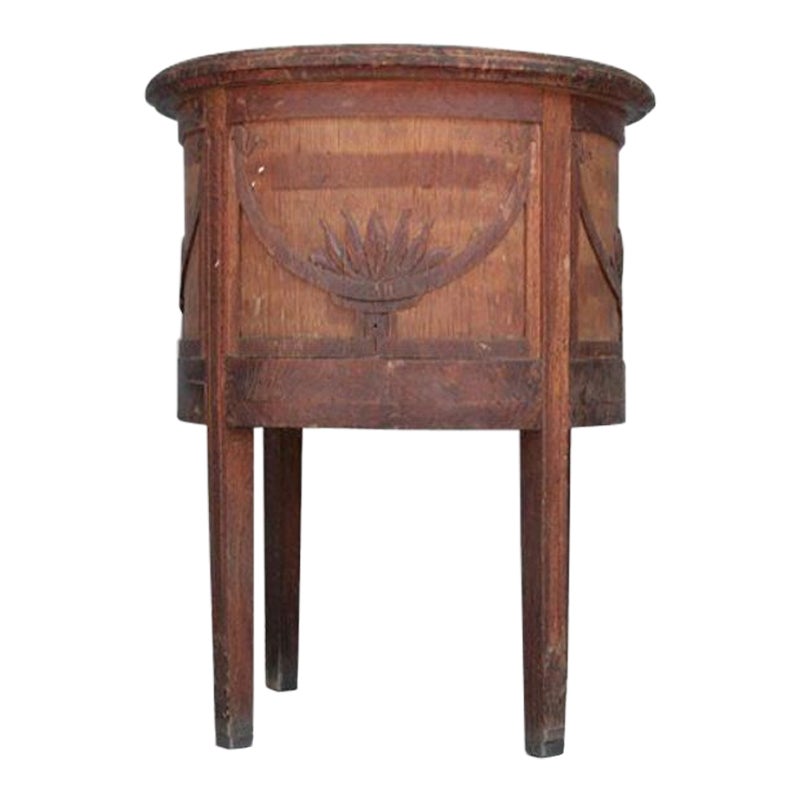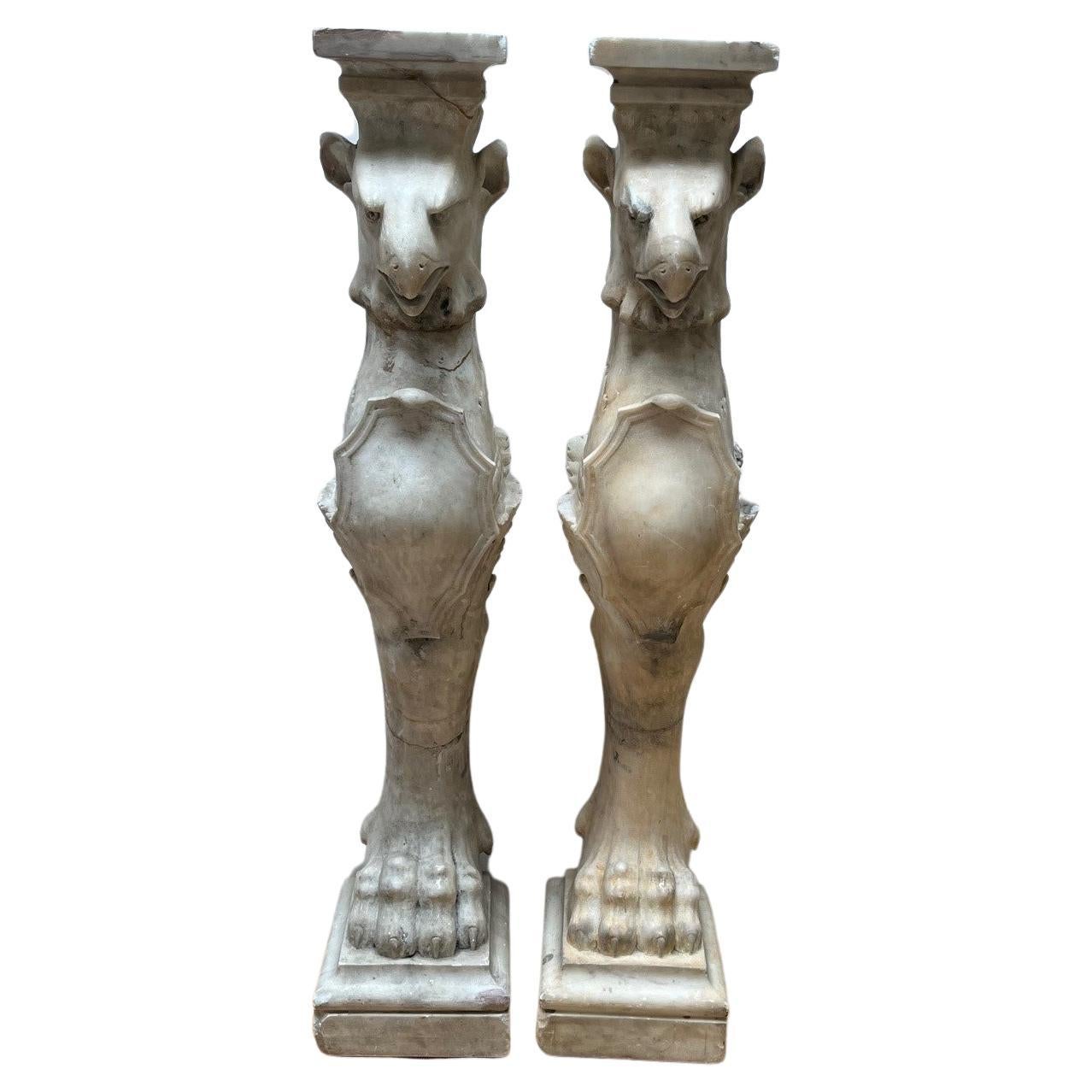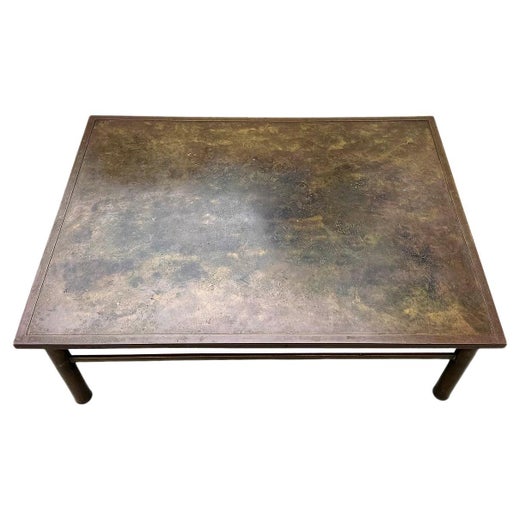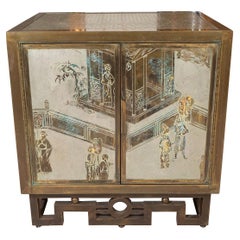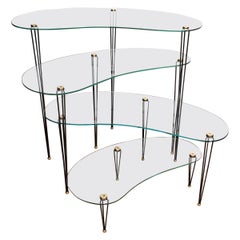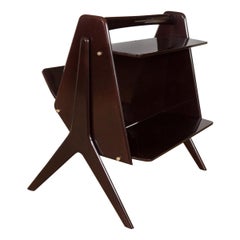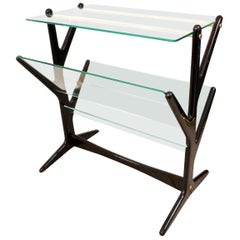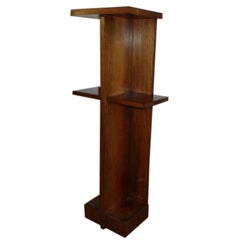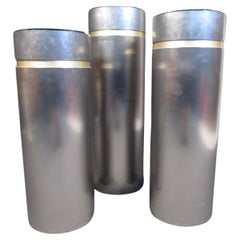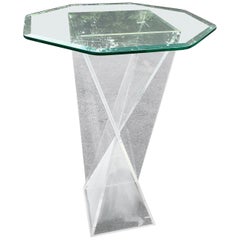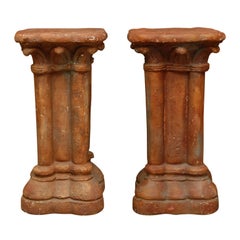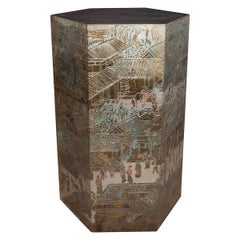
Rare "Chan" Chinoiserie Pedestal
View Similar Items
Rare "Chan" Chinoiserie Pedestal
About the Item
- Creator:Philip and Kelvin LaVerne (Designer)
- Dimensions:Height: 30.25 in (76.84 cm)Width: 18.5 in (46.99 cm)Depth: 17 in (43.18 cm)
- Style:Mid-Century Modern (Of the Period)
- Materials and Techniques:Bronze,Pewter
- Place of Origin:United States
- Period:1960-1969
- Date of Manufacture:circa 1960
- Condition:Wear consistent with age and use.
- Seller Location:New York, NY
- Reference Number:Seller: 243A12001stDibs: LU781115975881
Philip and Kelvin LaVerne
Look closely at any vintage furniture designed by father-son duo Philip and Kelvin LaVerne and a cacophony of stylistic influences reveals itself.
The LaVernes’ position at the intersection of art and design was the result of their combined backgrounds: Philip (1907–87) studied painting with Ashcan School artist John Sloan at the Art Students League of New York, while his son, Kelvin (b. 1937), attended the Parsons School of Design, taking classes in art history, furniture design and metalwork. The resulting merge of stylistic elements and innovative processes make for singular designs that defy categorization, striking a balance between modern and traditional, intricate and minimal, art piece and functional item. Their work was also strikingly different from the modern furniture created by Philip’s brother Erwine and his wife, Estelle, of Laverne Originals.
The LaVernes began producing one-of-a-kind furniture and sculpture in the mid-1950s out of a studio on Wooster Street in New York City before opening a showroom on Manhattan’s East 57th Street. As their 1960s advertisements declared: “It’s not just functional and not just art, it’s an investment.”
The LaVernes married a stunning array of techniques and styles to achieve their singular, deeply layered look for one-of-a-kind and limited-edition pieces. Chinoiserie motifs abound on many of their acid-etched tables, but art from ancient Greece and Egypt also served as inspiration. The influence of figurative sculptors is evident in designs like coffee tables and side tables with bronze bodies serving as frames or bases; other pieces, meanwhile, have deeply detailed surfaces and strikingly simple silhouettes.
The duo developed their own unconventional methods — sometimes to an extreme — for finishing their pieces: Techniques employed by the LaVernes included acid washing and burying furniture underground in a mixture of soil and chemicals to achieve a desired patina through oxidation. While they sometimes used pewter and silver, bronze was one of their most commonly employed materials, either etched or cast and sometimes paired with glass tops. Their partnership ended when Philip died in 1987 and Kelvin shifted his practice to sculpture.
Find an extraordinary range of vintage Philip and Kelvin LaVerne tables, decorative objects and other furniture on 1stDibs.
More From This Seller
View AllVintage 1960s American Mid-Century Modern Cabinets
Bronze, Pewter
Vintage 1960s Italian Mid-Century Modern Nesting Tables and Stacking Tables
Metal, Brass
Vintage 1960s Italian Mid-Century Modern Tables
Brass
Vintage 1960s Italian Mid-Century Modern Tables
Glass, Wood
Vintage 1960s Italian Mid-Century Modern Tables
Glass, Wood
Vintage 1960s Italian Mid-Century Modern Tables
Iron
You May Also Like
20th Century French Pedestals
Rosewood
Vintage 1960s Mid-Century Modern Pedestals
Metal
20th Century American Mid-Century Modern Pedestals
Glass, Lucite
Early 20th Century Italian Renaissance Pedestals
Terracotta
Antique 18th Century and Earlier Italian Pedestals
Wood
Antique Early 19th Century American Pedestals
Wood
